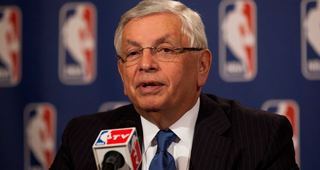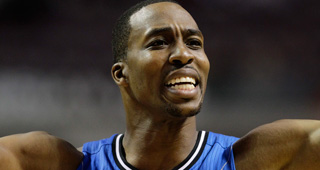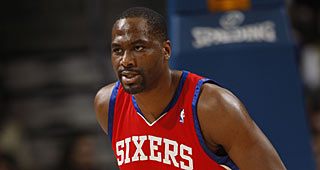Over the coming weeks and possibly months, the eventual resolution of the Dwight Howard situation will be the first major test of how, if at all, the new CBA has shifted the dynamics behind the efforts of teams to retain their franchise players.
The new rules were designed to increase team leverage while reducing the power players possess to dictate when and where they will be moved.
The home team, which holds the player’s Bird Rights, can offer 7.5% annual salary raises, compared to 4.5% annual raises for all other teams. The home team can also offer a fifth contract year while all other teams are limited to four.
And perhaps most significantly, a loophole has been closed: The player can no longer receive the larger annual raises and extra contract year with a sign-and-trade from the home team to another team. The only way, as a free agent, that the player can receive these twin benefits is by staying put.
Another scenario is for the player to be traded, prior to free agency, transferring Bird Rights to the acquiring team which would then be able to offer the larger raises and an extra year. This, of course, is the essence of Howard’s request that the Magic deal him to one of his preferred destinations – reportedly New Jersey or Dallas – before this year’s March 15th trade deadline.
Will the new rules be sufficient to keep superstars like Howard, who have expressed a strong desire to relocate, with their current teams?
Whether the Magic front office feels comfortable enough to press its advantages at the risk of losing Howard without compensation if he simply signs elsewhere – and how Howard’s camp would then respond, as a real measure of how strongly Howard values a change of scenery over financial security – will answer the question in this case.
Jerry West stated recently that if he found himself in the middle of such a dilemma, he would opt to try calling the player’s bluff.
“If I were an executive on a team where a player says he’s going to leave, let him leave,” West said.
Otis Smith, general manager of the Magic, might agree with West.
“He can still walk, but with a $30 million haircut,” Smith said of Howard.
It’s difficult to say, of course, whether Smith is truly prepared to follow this course of action or is simply posturing.
Below are the actual salary figures of the free-agent contract that the Magic can offer Howard compared to any other team, like the Nets or Mavericks, both of which project to have the available salary cap room to sign Howard outright this coming offseason.
Such a maximum-salary contract offer from Orlando would be $29.8 million larger than any other in total, but over the same four years, the difference is just $5.1M. Said another way, approximately 83% of Orlando’s financial edge comes from the extra fifth season, with the rest a product of the larger annual raises over the first four years.
The lion’s share of Orlando’s leverage could be decided by how confident Howard is in earning a maximum-salary contract in the season after his contract with New Jersey or Dallas would expire. Howard would be 31-and-one-half years of age when he went back on the free-agent market again (if he did not extend his contract before then, which certainly should not be taken as a given).
The first year of Howard's second contract with a new team, otherwise known as Year 5 if he remains with the Magic, would be no less than $21,741,334.
Orlando’s Free-Agent Max Offer to Howard
Year 1: $18,996,359
Year 2: $20,421,086
Year 3: $21,845,813
Year 4: $23,270,540
Year 5: $24,695,267
________________
$109,229,065
Other Teams’ Free-Agent Max Offer to Howard
Year 1: $18,996,359
Year 2: $19,566,250
Year 3: $20,136,141
Year 4: $20,706,032
________________
$79,404,782




